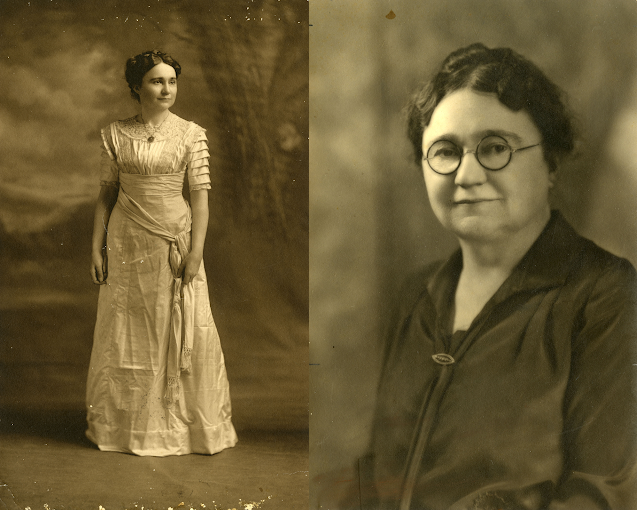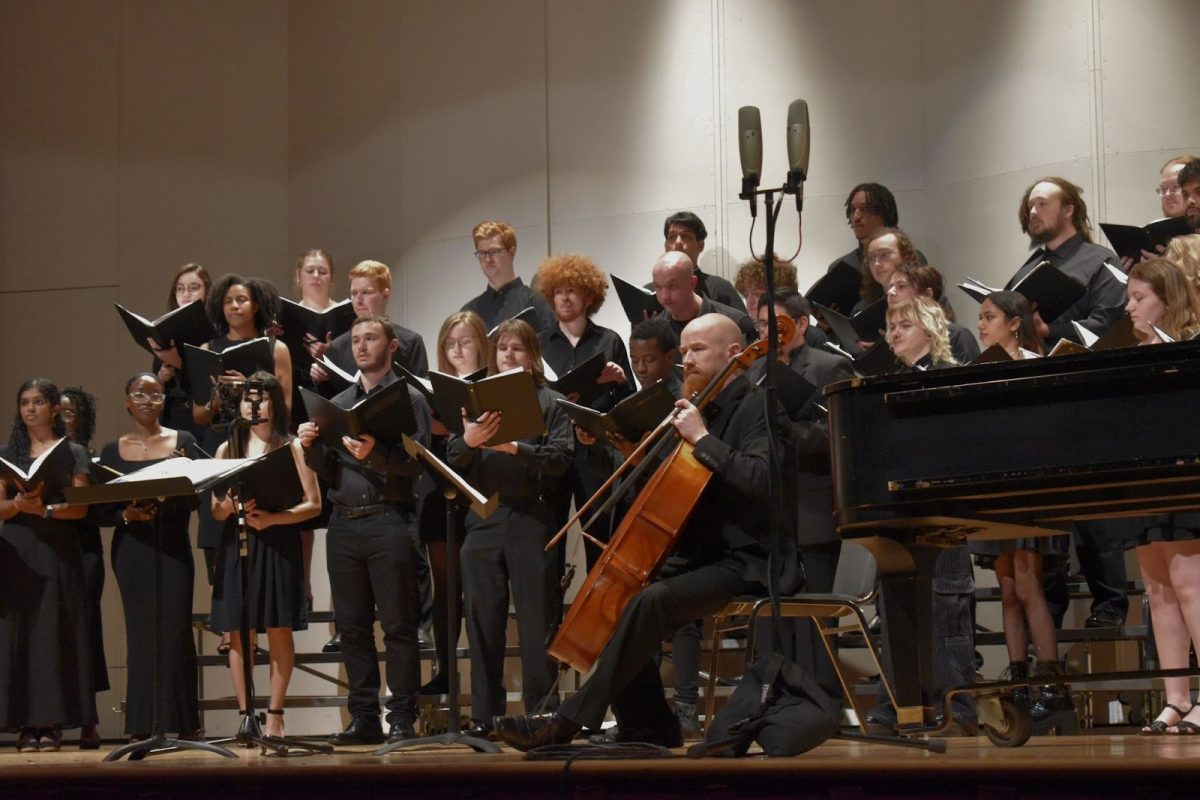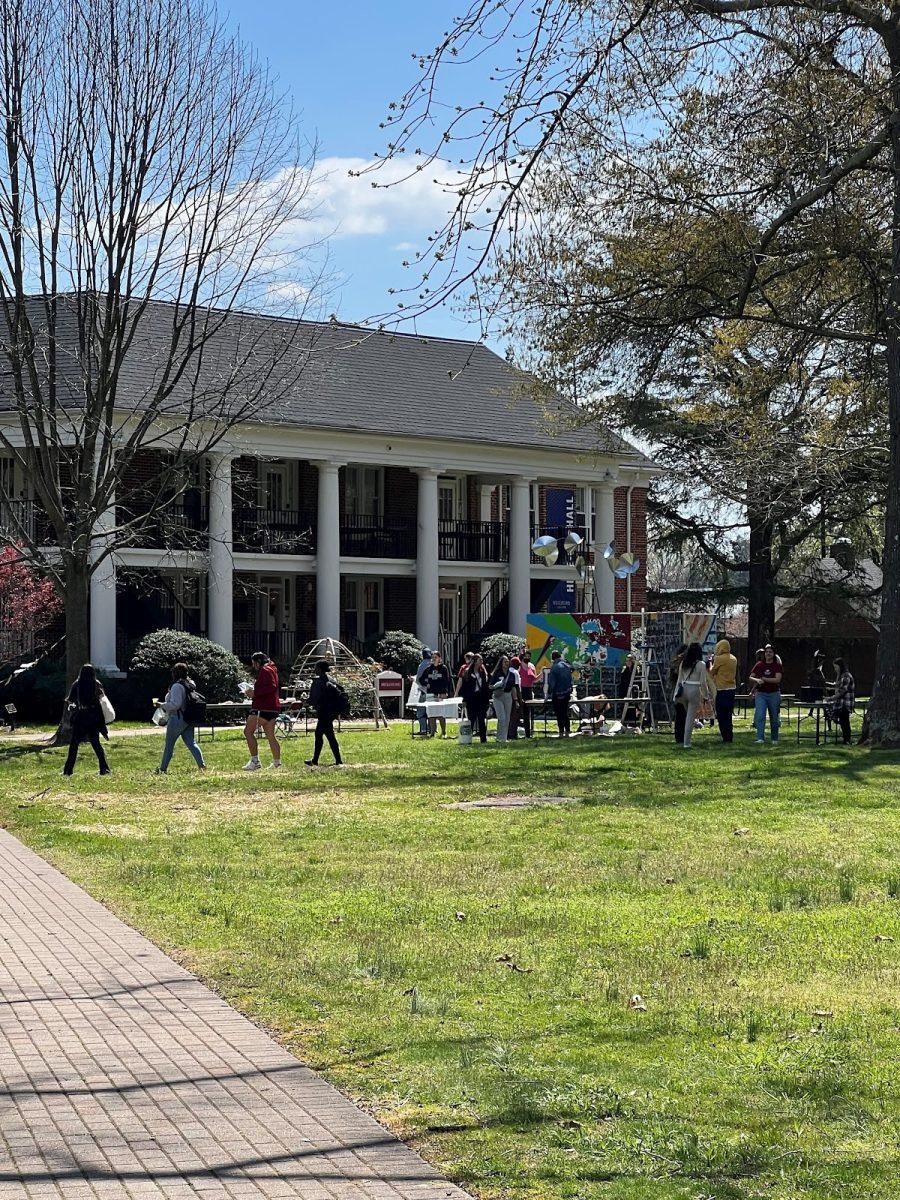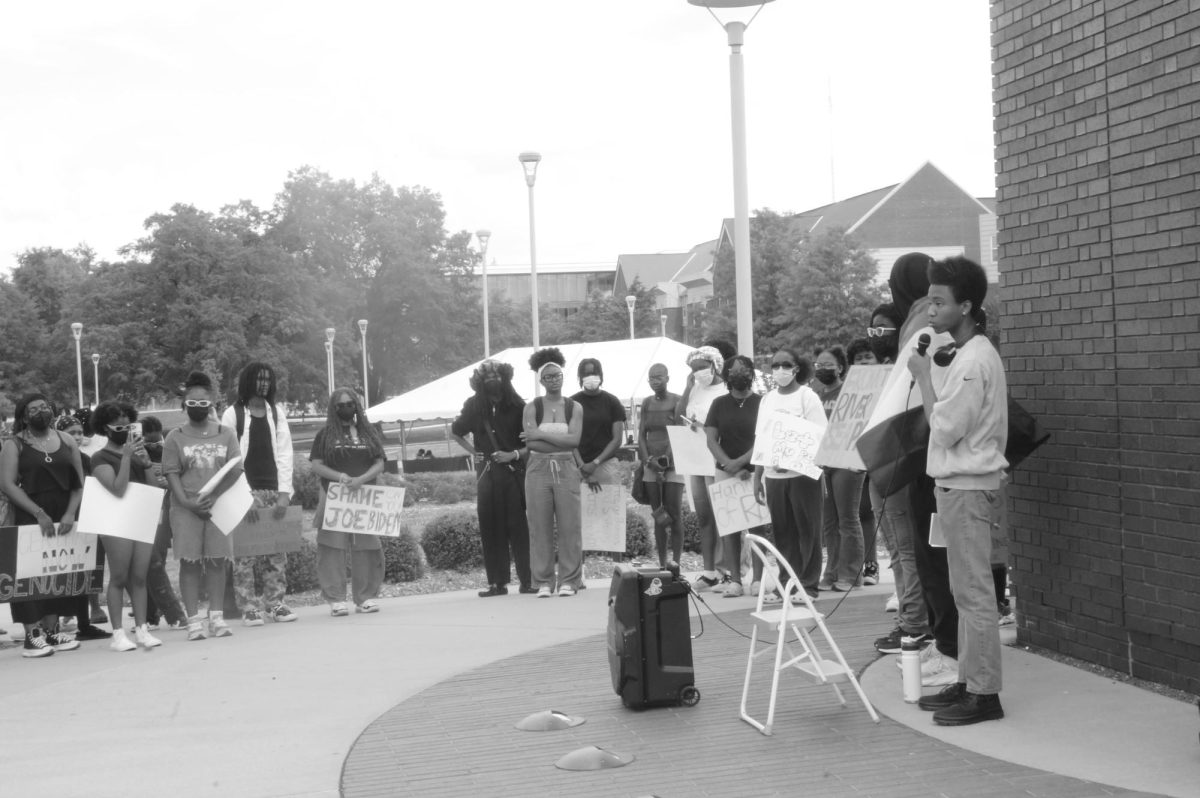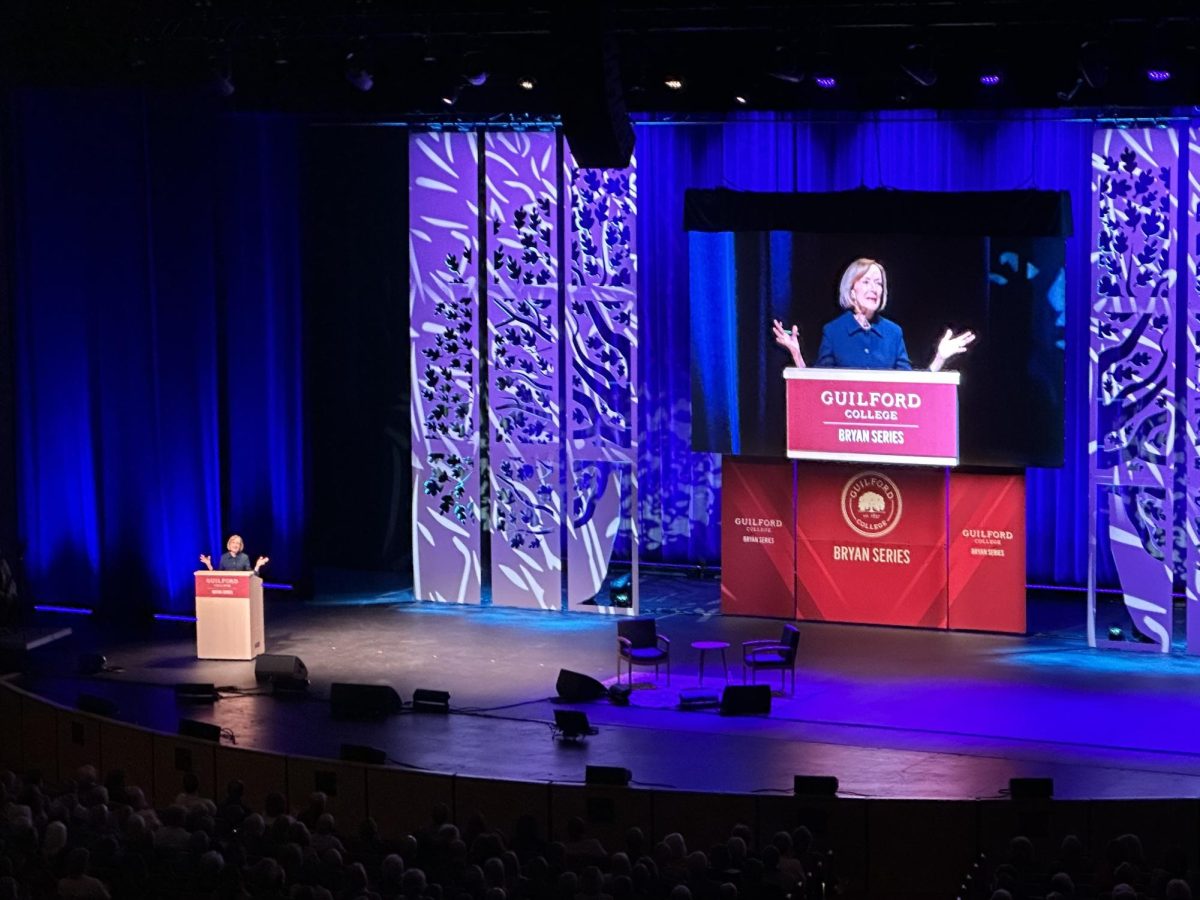Scattered around campus, on merchandise, buildings and banners, the Guilford College logo carries the words upon which the school was founded: community, diversity, equality, excellence, integrity, justice and stewardship.
These Quaker values fill every corner of the campus. They echo not only through the halls of the academic and residential buildings but, more clearly, through the legacies of the individuals for whom these structures are named: Mary Hobbs, Joseph M. Bryan Jr., Francis T. King.
One name has been missing from the halls, however: Clara Ione Cox.
An activist in the making
Cox, a Quaker pastor and Guilford alumni who graduated in 1902, was truly a symbol of all of the values that are so important to this community. She thus earned herself the title of “hero” by those who knew her well and those for whom she advocated in a time when doing so was uncommon. Today, a Guilford College merit scholarship named for Cox honors her legacy while supporting incoming first-year students or transfer students.
Born on Dec. 18, 1879, to wealthy North Carolinians Bertha Snow and Jonathan Elwood Cox, Clara was expected to remain confined to the traditional lifestyle of her inherited elite status. However, instead of spending her days lounging on her porch, as her socialite mother was said to have done, Cox was active in various social justice movements. She began her activism in movements including temperance and socioeconomic equity in education with her various club memberships at Guilford.
Something was different about Cox from her birth that contributed to this divergence from the norm of other women in her time: Clara was intersex.
In the only biographical record of her life, Brenda Haworth, curator for the Museum of Old Domestic Life at Springfield Friends Meeting, detailed conversations she had with people who knew Cox well. Most of her interviewees recalled that Cox was a known “morphodite,” a malapropism for hermaphrodite which is the outdated term for a person being intersex, or being born with both male and female genitalia.
“Everybody knew,” Haworth said when asked about how this information was found about Cox. “They were very casual about it. It was just like saying she had brown hair.”
Both Haworth and Guilford’s Quaker Archivist Gwen Erickson believe that this fact about Cox is what set her apart from other women of the age, as she was unable to follow the same path of courtship, marriage and childrearing.
“Because she was different and was not fit into a box of automatically going to get married and have children, certain choices for the assumed path for a young woman of her age and position were taken off the table,” Erickson said.
“So, that opened some doors at the same time it closed some,” she continued. “Rather than her having her own children, she was able to focus those energies to the wider community, and perhaps it also helped her take some less traditional paths like receiving a higher level of education than other women.”
After attending Guilford, where her father was a trustee, Cox went to White Bible Institute and later Columbia University, both in New York. While at Guilford, she began her lifelong pursuit of community service, serving as four-year secretary of the Young Women’s Christian Temperance Union, secretary of the Girls Athletic Association, president of the Philagorean Society, president of the Christian Endeavor, business manager for the publishing committee and secretary of her junior class.
For any college student, past or present, this would be no ordinary feat – especially while balancing rigorous courses on top of other commitments. Except for receiving a D in math and physics, which she later passed in her senior year, Cox was an outstanding student.
This balancing act that Cox tackled in her college years continued into her years of service as an adult. She rose to be a key figure in several organizations committed to improving conditions for the impoverished, advocating for high-quality public education and fostering improved interracial relationships in the South. When she wasn’t giving evocative speeches and organizing events for her committees, Cox could be found simply delivering groceries to the people in her community who needed her help.
With all of these obligations on her plate across the state, locals began recognizing her on the road as well as behind the pulpit. According to Haworth and Erickson, because she was known for racing from county to county, from church to town hall, locals jokingly dubbed her automobile her “little electric car.”
“If there was a rally in Asheboro, she’d drive down there, and she’d even go to Raleigh to rally for something or other,” Haworth said. “She was very active in that and she even had a car, which was not woman-like at that time.”
According to a letter in Cox’s 1930 file in Guilford’s Quaker Archives, while speeding to a meeting in Raleigh which featured a speaker on Mesopotamian genocide, a man ran into her car. While the accident was not her fault, she paid the entire cost of the accident for the man because she felt sorry for him.
Generosity beyond wealth
Cox’s generosity with money came directly from her views as a Quaker, notably the value of stewardship, which the Friends Journal defines as “caring for those who donate money and those who give of themselves as volunteers.”
During World War I, when the pastor of Springfield Friends Meeting left his position to contribute to the war effort, Cox took the role as a volunteer. She became the permanent pastor during the meeting house’s third remodeling in the late 1920s. For her birthday in 1929, her father gave her $500, and Cox donated every penny to the remodeling of the meeting house.
One Quaker minister, Cecil Haworth, once said that he never trusted her with much money because she’d give it away. His point was backed up by the fact that once she became the official pastor of Springfield, Cox would donate her monthly salary back to the church, to students in the region or to events for her various committees.
Her generosity didn’t stop with monetary donations.
“Clara would just give away things, so her cousin and caregiver Effie would have to hide Clara’s underwear and clothes or a sweater because Clara believed there was always someone who needed those things worse than she did,” Haworth said. “Effie was really her keeper and was trying to keep Clara from giving everything away.”
To Cox, clothes and jewelry were merely possessions, and she apparently dressed very modestly with the few items of clothing she did own. According to Haworth’s biography, Cox had a couple of sensible blouses, skirts, dresses and jackets, two black hats, a ring set and a watch. Compared to other women with her status, including her own mother, Cox’s sensible fashion and donations to those who needed clothes more than she were out of the ordinary.
In 1942, just two years after Cox’s death, her work toward improving the lives of others was honored with the opening of Clara Cox Homes in High Point. This apartment complex succeeded in providing affordable housing to people in the county, one of Cox’s lifetime pursuits.
However, there was one quality about these homes that Cox would have strongly opposed.
“What was ironic about the apartments was that Black people couldn’t live in there,” Haworth said. “She would have turned over in her grave over that. She would have appreciated that the apartments were made for poor people, but she would not have appreciated that Black people were not allowed in.”
Championing civil rights and education
Cox was an active member in the civil rights movement of the early 1900s, specifically when it came to the education of Black children. She helped sponsor the development of Efland Home, the first home in North Carolina with the specific purpose of educating young African American girls who had been labeled as delinquents. She also funded the college educations of countless African American women in North Carolina.
Marion E. Woods was one of those women. Woods, who attended N.C. College at Durham, now N.C. Central University, expressed her thanks to Cox in a letter that is now in Guilford’s Quaker Archives.
“Though I am expected to graduate this year, your interest in me will always be a stimulus to keep me ever moving forward,” she wrote. “Your very kind help has meant more to me than I can ever show either in word or deed. I shall ever be grateful to you and shall always feel my praise and thanks are not equal to your great help.”
Cox was heavily involved in improving interracial relationships in the South as president of the N.C. Commission on Interracial Cooperation, as well as an active member in the Association of Southern Women for the Prevention of Lynching.
As president of the commission, Cox pressed for what she called “Interracial Sundays” or “Race Relations Sundays” at her church, as well as churches across the state.
During these services, Cox asked that churches invite Black speakers to discuss the current political, educational, economic and social situations of Black and Native Americans with the congregation. She would also ask Black musicians to perform, notably when she invited the quartet from Hampton Institute (now Hampton University), a historically Black college, to sing for her congregation and for various colleges in North Carolina including Guilford.
“It was her deep Christian faith that informed her choices on how to engage with her community and work beyond just her own congregation,” Erickson said. “I am sensing that she was respected as being a very good pastor and being there for her congregation, but also stepping beyond that to really look at the community as a whole.”
In her collaboration with the commission and the Association of Southern Women for the Prevention of Lynching, Cox worked closely with various notable members of the NAACP like the chief secretary Walter White. White corresponded with Cox in 1930 regarding the peaceful protests initiated by the Committee on Race Relations of the Friends against the nomination of anti-Black justice John J. Parker to the U.S. Supreme Court by President Herbert Hoover.
“We see in letters that Clara is receiving from people like Walter White and, the one that I was especially struck by, C.C. Spaulding who was the founder of North Carolina Mutual, the leading African American business in Durham, and he’s writing to Clara asking her opinion on something going on in High Point,” Erickson said, “and to me that shows someone who is trusted by a broad cross section of people as someone who has good insights and judgment.
“She’s not necessarily the one becoming famous, but she is the one people could go to as a trusted resource,” Erickson continued.
Cox’s legacy
“I mean, everyone I spoke to just adored Clara,” Haworth said affectionately. “We’ve all heard of do-gooders, but she really was a do-gooder. She lived it every day of her life.”
Even on her deathbed, Cox’s mind was on how she could help others. She gave her caregivers a list of people in High Point, and she asked them to make sure that they received the food or money that they needed while she was bedridden with pneumonia.
In her eulogy, Joseph H. Peele, the minister at Deep River Friends Meeting and a colleague of Cox’s, said that “her last official message was an earnest request that Interracial Sunday be properly observed.”
“Everyone just loved her,” Haworth said. “I only ran into one woman who didn’t like her. I was shocked.
“When she was courting, the woman and her man would sit on her mother’s porch on the swing with the lights off,” Haworth said, “so Clara went to her mother and told her she was alone in the dark with a man she was not yet married to.”
When the woman’s wedding day came, Cox was not allowed to officiate the marriage even though the woman was a member of Cox’s congregation.
“That story about Clara is what tells me that she was most likely a woman who called a spade a spade and called things like they were which definitely played into all the work she accomplished,” Haworth laughed as she recalled her interview with the woman. “Men and women are equally complimentary of her because she was so ahead of her time.”
Cox was an integral, yet forgotten part in the progress made for social justice in North Carolina, all stemming from her dedication to the Quaker values of community, diversity, equality, excellence, integrity, justice and stewardship. To this day, 30 years after she wrote her biography, Haworth teaches the members of Jamestown Friends about Cox’s life, because to her, “Clara is one of the most overlooked people in our history. She was an instigator in everything.”

